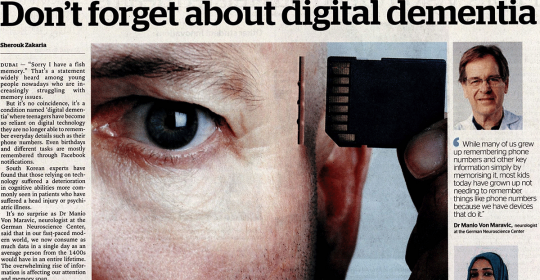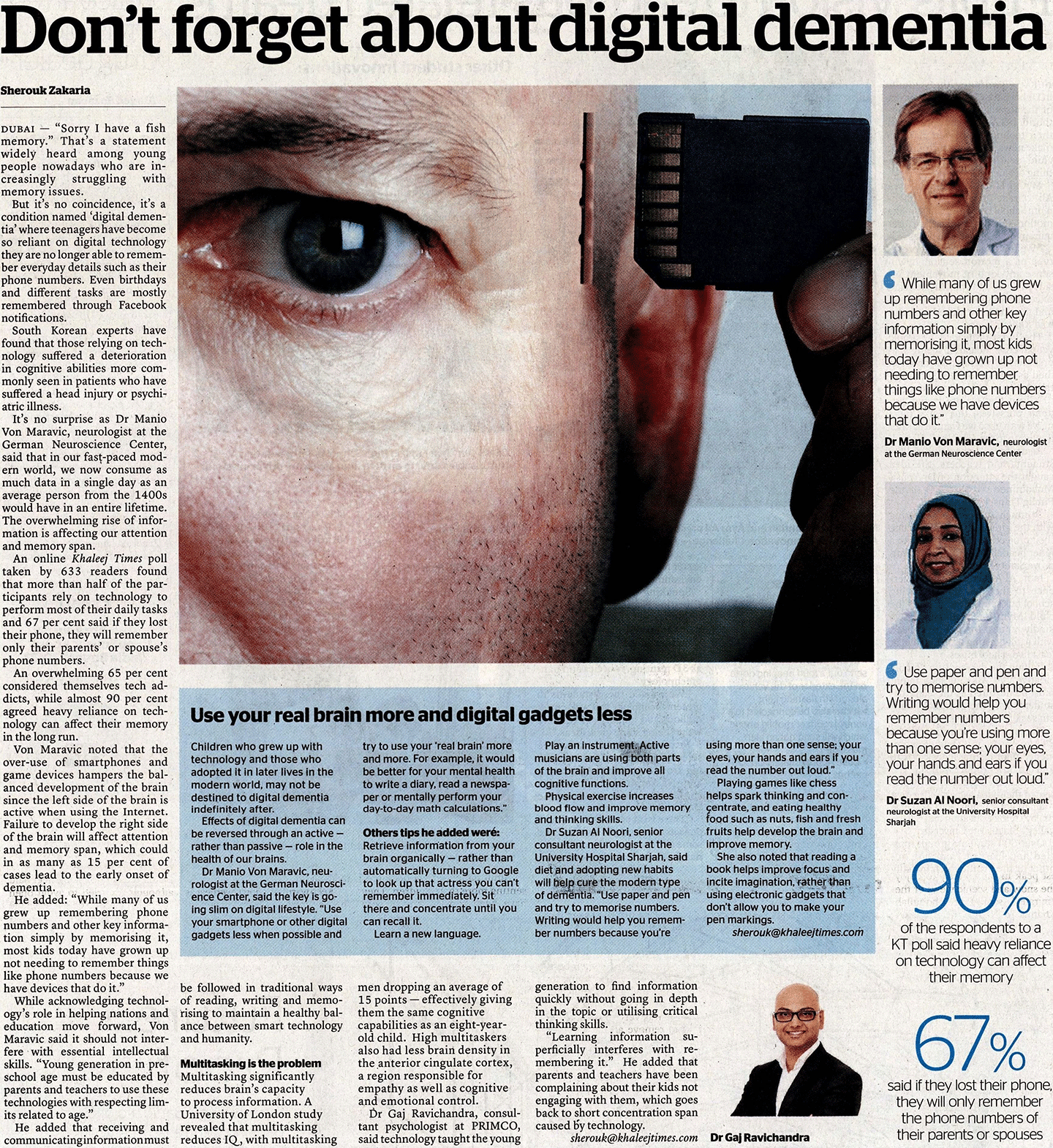
Don’t forget about digital dementia
Khaleej Times | Sherouk Zakaria |Feb 5, 2017
Teenagers have become so reliant on digital technology they are no longer able to remember everyday details such as their phone numbers.
“Sorry I have a fish memory.” That’s a statement widely heard among young people nowadays who are increasingly struggling with memory issues.
But it’s no coincidence, it’s a condition named ‘digital dementia’ where teenagers have become so reliant on digital technology they are no longer able to remember everyday details such as their phone numbers. Even birthdays and different tasks are mostly remembered through Facebook notifications.
South Korean experts have found that those relying on technology suffered a deterioration in cognitive abilities more commonly seen in patients who have suffered a head injury or psychiatric illness.
It’s no surprise as Dr Manio Von Maravic, neurologist at the German Neuroscience Center, said that in our fast-paced modern world, we now consume as much data in a single day as an average person from the 1400s would have in an entire lifetime.
The overwhelming rise of information is affecting our attention and memory span.
An online Khaleej Times poll taken by 633 readers found that more than half of the participants rely on technology to perform most of their daily tasks and 67 per cent said if they lost their phone, they will remember only their parents’ or spouse’s phone numbers.
An overwhelming 65 per cent considered themselves tech addicts, while almost 90 per cent agreed heavy reliance on technology can affect their memory in the long run.
Von Maravic noted that the over-use of smartphones and game devices hampers the balanced development of the brain since the left side of the brain is active when using the Internet. Failure to develop the right side of the brain will affect attention and memory span, which could in as many as 15 per cent of cases lead to the early onset of dementia.
He added: “While many of us grew up remembering phone numbers and other key information simply by memorising it, most kids today have grown up not needing to remember things like phone numbers because we have devices that do it.”
While acknowledging technology’s role in helping nations and education move forward, Von Maravic said it should not interfere with essential intellectual skills. “Young generation in preschool age must be educated by parents and teachers to use these technologies with respecting limits related to age.”
He added that receiving and communicating information must be followed in traditional ways of reading, writing and memorising to maintain a healthy balance between smart technology and humanity.
The full original article was published on Khaleej Times
Alzheimer Dementia – German Neuroscience Center Dubai
Your Specialist for Alzheimer’s Disease and Dementia in Dubai, UAE.


